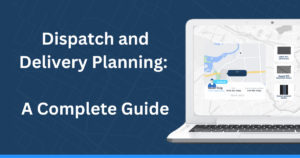Small businesses get frightened by media reports of looming recessions, but there is proof that it’s nothing to have sleepless nights over. A recession is usually defined as two consecutive quarters of negative gross domestic product (GDP) growth, but sometimes more complex formulas are also used.
Locate2u CEO Steve Orenstein says during a recession people don’t stop spending money. “It just means that the economy is not growing. If you’re a small business you might see some slower growth, but your businesses typically won’t just stop growing. You may have certain clients who reduce their spending and if this happens it’s time to find the clients who are still spending money. The worst thing a small business can do is just use the recession as an excuse for it declining in growth. This is a time where businesses which innovate and think outside the box are the businesses which are going to last for decades.
Orenstein believes economies don’t have to grow all the time for businesses to thrive. “If your business isn’t profitable, then raising capital is going to be a lot more challenging. Making sure that you can survive on the capital that you currently have available is going to be important. Focus on every dollar you spend to move your business to profitability will be key”.
Small businesses gearing up for fragile economy
It’s hard to stay focused with this wolf blowing down your neck. There are companies who have lived through a recession and came out stronger. HubSpot has listed seven companies which saw the 2008 recession as an opportunity rather than crippling it.
- Lego: It expanded into a global market and delivered an all-time high probability.
- Groupon: It started off in a recession, delivering discounts was just what customers needed.
- Mailchimp: It changed its business model during a recession to a freemium business.
- Netflix: It focused on partnerships with organizations like Xbox.
- TeamLogic IT: Sales for technology increased during the recession.
- Citigroup: It focused on branding and quality services.
- Warby Parker: It identified a gap in the market and filled it.
Stay focused during tough economic times
These seven companies prioritized value and pricing. They focused on what was best for their brand and not what everyone else was doing. They focused on the gaps created by the recession and accelerated. Mailchimp is a good example of being able to adapt to what was needed. It changed its entire business model, and it worked for them.
Focus on core business during recession
Take care of your existing customers. Now more than ever it is time to value the loyal customers and gain more. By doing so you have to understand your customers. Their needs will drastically change when money is low. They will cut down on their budgets, and you’ll have to follow along with their needs. Which brings us to being flexible with your price. In a recession customers are looking for a good deal. This is what made Groupon thrive; helping customers look out for all the good deals in one place.
Look out for opportunities in tough economy
Warby Parker succeeded by noticing a gap in the market during the 2008 recession. Everyone needed a pair of affordable glasses. That’s exactly what Warby Parker had to offer. Lego is another example of a company that noticed a gap during the time, expanding its brand globally, focusing on Europe and Asia.
While customers might be hesitant to spend any money during a recession, businesses should create a sense of urgency. Investing in marketing will also help the brand to be more visible at a time when most people are more online.
About the author
Mia is a multi-award-winning journalist. She has more than 14 years of experience in mainstream media. She's covered many historic moments that happened in Africa and internationally. She has a strong focus on human interest stories, to bring her readers and viewers closer to the topics at hand.













